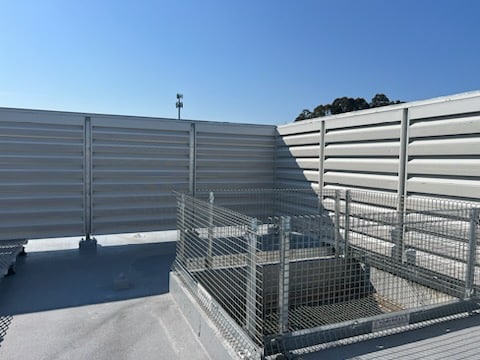Call 1300 799 969 | Contact Us


Home » 4 Positive Impacts of Industrial Noise Control
In today’s rapidly evolving industrial landscape, businesses must prioritise the health, safety, and productivity of their workforce. An often underestimated factor in achieving these goals is effective industrial noise control.
Excessive noise levels not only pose a risk to the wellbeing of workers, but also impact overall productivity. That’s why Australia has established stringent noise control regulations that are designed to protect workers from the adverse effects of excessive noise in industrial settings.
These regulations aim to mitigate health hazards and promote a safe working environment. Compliance with these regulations is not only a legal obligation, but also an opportunity for businesses to prioritise their employees’ wellbeing and improve productivity.
By proactively implementing sound noise control strategies that comply with Australian regulations, businesses can unlock a range of benefits. In this article, the Flexshield team will look at 4 ways effective noise control can help to improve an industrial business.
Prioritising the health and wellbeing of employees is a fundamental aspect of effective noise control. Prolonged exposure to high noise levels can result in hearing loss, tinnitus, and stress-related disorders.
By implementing engineering controls such as sound insulation, absorption, or vibration isolation, businesses can significantly reduce noise levels, mitigating the risk of long-term hearing damage. This demonstrates a commitment to employee welfare, fostering job satisfaction and enhancing loyalty.
Controlling noise levels also has a direct positive impact on productivity. Excessive noise disrupts communication, concentration, and task performance, leading to errors, reduced efficiency, and increased stress levels.
By implementing engineering controls or administrative measures like job rotation or designated quiet areas, businesses create a conducive work environment that fosters productivity and concentration.
Industrial noise control measures offer financial advantages to industrial companies. Failure to comply with noise regulations can result in fines and penalties. Additionally, excessive noise increases the likelihood of worker compensation claims due to hearing-related injuries or stress-related disorders. By investing in noise control measures, businesses can minimise these risks, reduce insurance costs, and allocate their resources more efficiently.
Beyond legal compliance and financial considerations, effective noise control enhances a company’s reputation and attracts top talent. In today’s market, sustainability and employee wellbeing are highly valued. Organisations that demonstrate a commitment to noise control regulations and create safe and healthy work environments differentiate themselves as responsible employers of choice.
To embark on an effective industrial noise control journey, businesses should start with a comprehensive assessment of noise sources and exposure levels. Conducting noise surveys and seeking expert advice can help identify areas that require attention and guide the development of a tailored noise control plan that complies with Australian regulations.
As a leading provider of industrial noise control solutions in Australia, Flexshield offers expertise and support to businesses looking to address their noise concerns. Our team of experts can conduct on-site assessments and work collaboratively to develop the best noise control solution for your individual needs.
When formulating a noise control plan, it is essential to follow the hierarchy of controls outlined in Australian regulations. This approach emphasises eliminating or substituting noise sources where feasible, implementing engineering controls such as noise barriers or enclosures, and utilising administrative controls such as work rotation or job redesign. Personal protective equipment (PPE) should be used as a last resort when other control measures are insufficient.
Get advice on industrial noise control for your facility
The positive impact of industrial noise control in compliance with Australian regulations is significant. By prioritising the health, safety, and productivity of workers, businesses can ensure compliance while reaping numerous benefits, including better employee wellbeing, enhanced productivity, reduced financial risks, and a bolstered reputation.
Effective noise control measures are a vital investment for any forward-thinking organisation, enabling the creation of a harmonious and thriving work environment in line with Australian noise control regulations. Partnering with experts such as Flexshield can provide the necessary expertise and solutions to effectively achieve these goals.
For expert advice on the right noise control solutions for your facility, please contact Flexshield at 1300 799 969.